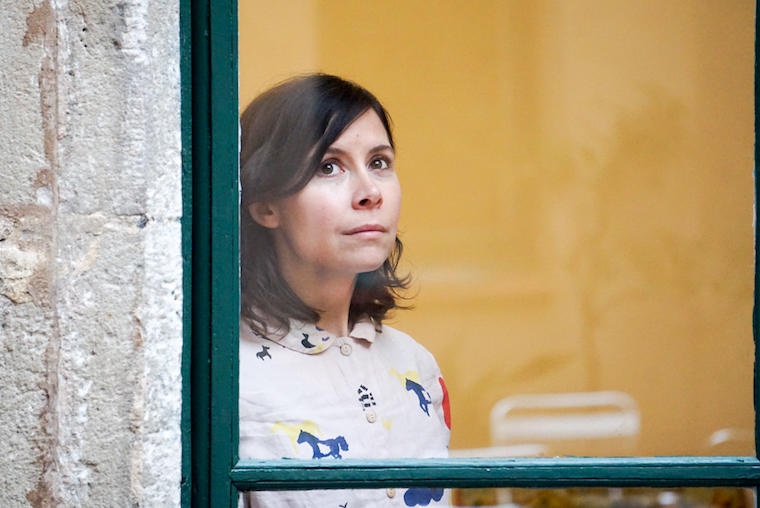Search
To search for an exact match, type the word or phrase you want in quotation marks.
A*DESK has been offering since 2002 contents about criticism and contemporary art. A*DESK has become consolidated thanks to all those who have believed in the project, all those who have followed us, debating, participating and collaborating. Many people have collaborated with A*DESK, and continue to do so. Their efforts, knowledge and belief in the project are what make it grow internationally. At A*DESK we have also generated work for over one hundred professionals in culture, from small collaborations with reviews and classes, to more prolonged and intense collaborations.
At A*DESK we believe in the need for free and universal access to culture and knowledge. We want to carry on being independent, remaining open to more ideas and opinions. If you believe in A*DESK, we need your backing to be able to continue. You can now participate in the project by supporting it. You can choose how much you want to contribute to the project.
You can decide how much you want to bring to the project.

I don’t usually use English to title my works, but in this case I found it difficult not to. Even though semantically la hora del reloj (‘the time of clocks’, in Spanish) has virtually the same meaning as clock time, the English version is so succinct and precise that it evokes its referent much more forcefully. With its syntactic simplicity and its mechanic – almost onomatopoeic – sound, implicit in the phonetics and grammar of clock time is a desire to optimise and efficiently manage time. This desire, which in our agitated times pretty much seems to be a universal aspiration, is socially instrumentalised (both figuratively and literally) by the clock, an apparatus for measuring and collectively organising time, but also a tool for controlling and homogenising human activities.
My proposal as a guest editor of the January 2019 issue of A*Desk has been to dedicate the first month of the new year to thinking about time and its forms of social organisation, and to see how artistic practice has addressed these matters.
The month began with an editorial essay by Pol Capdevila in which the philosopher reflected on the fact that the clock – which seven hundred years ago was accepted as an instrument designed to make us more independent and free, and in fact became a symbol of evolution – now appears more as a tool of control that paralyses progress. Capdevila analysed the characteristics of chronological time on which our way of conceiving and understanding time is now based, and also sceptically revised other heterochronic time models proposed by intellectual and artistic criticism.
Responding to the invitation of imagining the A*Desk platform as a possible space for artistic intervention, and aware of how we frequently dedicate more time to managing electronic bulletins and e-mails than to reading them, artist Mar Arza sent us an ephemeral newsletter, a poetic reflection on the contingent quality of time that the reader should hurry up and read as its words appeared to momentarily vanish, and ended up disappearing completely.
In his essay, Albert Alcoz reflected on how film and video, being as they are time-based media, work as devices in which multiple temporalities are brought together. Alcoz then focused on reviewing a few auteur films and video works in which the clock is the object of representation (The Clock by Christian Marclay, an undisputed referent in the genre, Time Clock Piece by Tehching Hsieh, or Time Piece by Jim Henson, among many others), and analysed how in the works the functions and utilitarian logic of this instrument of time measurement are often destabilised.
Reflections on temporality, on ways of measuring and documenting time and ways of subverting the standardised and regularised time of clocks imbue the works of Californian artist David Horvitz. Paloma Checa kept up a steady correspondence with Horvitz in which they discussed the connection between some of his works and time, and went on to write an article that studied and valued these artworks in which the author discovered a romantic attempt to escape the arbitrariness of socially regulated time that, in any event, always ends up reifying us as subjects.

Alexandra Laudo is an independent curator. In her projects she has explored, among others, issues related to narrative, text and the spaces of insertion between the visual arts and literature; the cultural history of the gaze; practices of resistance to the image in response to hypervisuality and oculocentrism developed from the visual arts and curatorship; and the 24/7 paradigm in relation to sleep, new technologies and the consumption of esimulants. Laudo has explored the possibility of introducing orality, peformativity and narration in the curatorial practice itself, through hybrid curatorial projects, such as performative lectures or curatorial proposals located between literary essay, criticism and curatorship.
Photo: Foto: © Ernest Gual
"A desk is a dangerous place from which to watch the world" (John Le Carré)